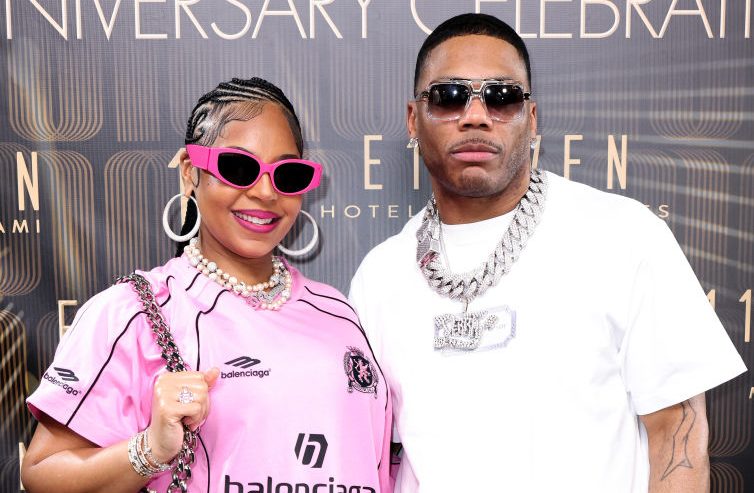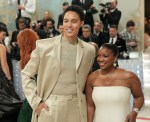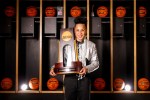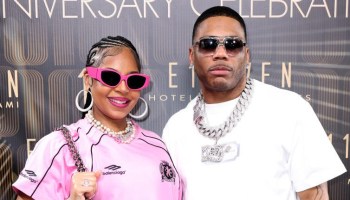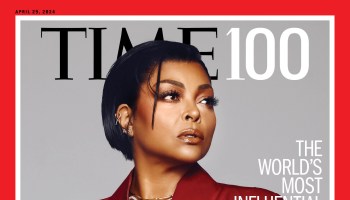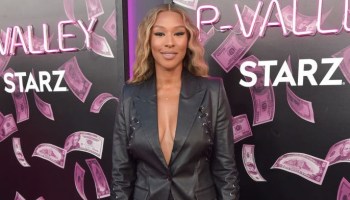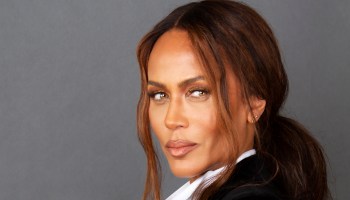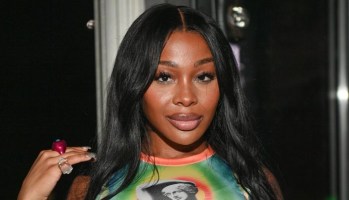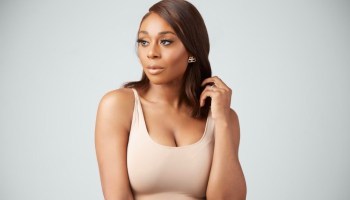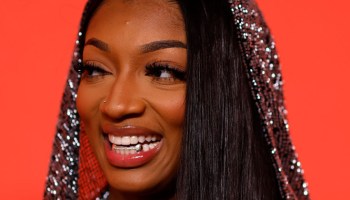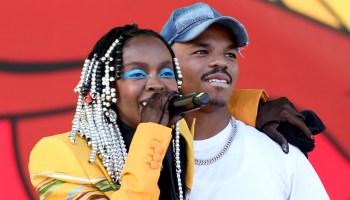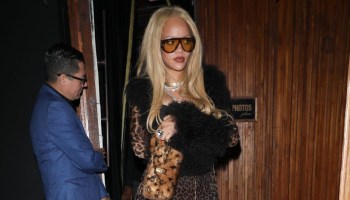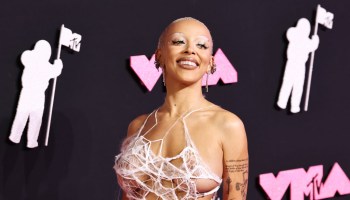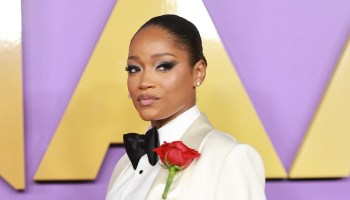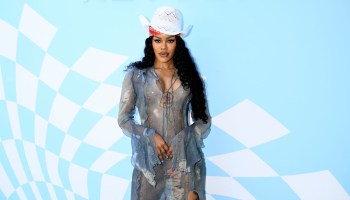Aside from Empire ratings and North West screwface sightings, another current fixation for Black people in America has been exploring their options to travel the world. Did any of you catch that cheap flight to Abu Dhabi? We missed it too, but not anymore, now that we have a friend like the author of A Fly Girl, a new memoir by Amanda Epe.
MUST READ: SHE TRAVELS: 7 Things You Can Check Off Your Bucket List In Jamaica
In the last few years, traveling has evolved from a once in every ten years occasion to a meaningful annual mission, especially for people of color. For us, it’s a movement that started a bit underground, with Facebook groups and websites catering to the niche of educated Black folk, feeding their otherworldly tastes.
But since last year, wider sites have published pro-travel articles by Black women and men, eager to spread the gospel and sway hundreds more, over to the passport club. But Epe didn’t inscribe her travels for a website, she comprised her array of knowledge and visuals as a flight attendant for her first book, the memoir, A Fly Girl.
Currently nominated for the Women 4 Africa author honor, what separates Epe from the average podcast or blog (by a Black person) about traveling is that she is also British. She gets the triple experience of sharing what it’s like to travel when you are Black, a woman and from England,as most stories about Black travels are greatly from the American angle. (And sidenote: flight attendants in the U.K. are called “cabin crew”.)
To contribute on the topic of this “we out here” movement, we ate up the chance to speak with Epe. She’s got tons of notes on life in the fly lane and our natural curiosity regarded the good, the bad, and ugly of her excursions. When you pick up a copy of her book, there’s even more covered about her wonderful travels!
HelloBeautiful: Why did you write A Fly Girl?
Amanda Epe: I wanted to inspire young people that you could do it, that we could all do it. There used to be limitations on who could get this kind of work [as a flight attendant] especially in Britain. From the 1960s, ‘70s, and ‘80s, it wasn’t really for Black people, or women to do that kind of work.
In the ‘90s, there was a breakthrough, and more minorities joined. I definitely wanted to encourage other Black women to travel. Plus, a lot of our families are from the Caribbean or Africa, and we normally just go to that destination and they don’t travel elsewhere. So, just to encourage other women to get around the world a bit more.
HB: Why do you think there’s this resurgence of Black people wanting to travel? Do you think that it’s trendy for right now, or it’s going to be here for years to come?
AE: Yeah, I think talking about it definitely makes people feel like “I can do it too.” But Black people have been traveling. It just hasn’t been documented. It’s not Christopher Columbus that discovered the Caribbean! Black people have been traveling from Africa to all over and Black people came to Europe before slavery began. There’s a resurgence, yes, but when we see other brothers and sisters doing it, we want to get involved as well.
HB: Do you think that it’s a fair assessment that Black people travel more or less than other cultures or races?
AE: It’s like the stereotype of ‘Black people don’t read.’ They like putting these things on us that we don’t do this and don’t do that. I don’t think it’s true. The traveling might not be as international, but it might be a national travel or little regional trips. There’s always a reason we have to travel. I believe that we keep moving.
HB: What are the most favorite places you’ve traveled to? Or the worst or most challenging countries?
AE: Japan was challenging. The roads are exactly the same as they were in England. You don’t get that in many countries. Because script was of course in Japanese, that was the challenging thing! Other challenging places: Egypt. In Egypt, going up the mountains, it was a night trip and I was alone, so that was me taking the risk, but it was a good thing I did because it helped me overcome fear.
I stood out because I am a Black woman and I was alone. The stares became more apparent to me and I heard negative remarks from people who told me they were going to keep me there, and that was frightening. And there’s nothing you do, because you don’t want to make yourself more vulnerable by mouthing off. Sometimes having another person or woman of color on the trip really does make a difference!
HB: What have you gained from traveling?
AE: It has helped me open my mind because before, I was very fixed on how things should be but when you see how other people do things–their way, you can’t be so judgmental. One hat fits all. It opened my mind a lot. It’s also helped me overcome a lot of fears. Seeing the beauty of creation as well.
Epe has a friendly personality that is warm and all-knowing. She recalls her travel experiences in a way that is nostalgic, but has inspired her to gain more memories just like it, or in hopes of them being grander than the first time.
Further down our Q&A, we also gained some unexpected perspective on how British people really view their African-American counterparts.
HB: Do you have any favorite parts or chapters of the book that were especially fun to go back to?
AE: I had so much fun in Asia. I was a part of a rescue squad at the time and there was a crisis in Jakarta [in Indonesia], so instead of looking after my friend who had accompanied, I had to go rescue some people who got caught up in the riots.
And I had a fun trip with my sister, in Thailand. I’ve had a great time in America too. We’ve gone all over the states. That was a like a dream come true. The Black-British community has always looked up to African-Americans because we don’t have many images of ourselves on TV [in England], so we always look up to them.
We didn’t have much programs featuring us and if we did, it was very derogatory. Most of the programs we did watch were from stateside, we based our lives on The Cosby Show and listened to a lot of rap music. Everything was from America. It’s a different identity here. We’ve grown. We’ve got our own scene now, own type of music. A lot of the British artists emulated the American accent!
HB: What it’s like to be Black in the U.K.?
AE: Black people have been in Europe for a very long time, but people just don’t know! And they still ask us about the Queen, and if we see her often! And it’s funny because when, in the past, I’ve been to Paris, there are so many Black people! But they’re just not as represented in the media, unless it’s something negative they are going to show.
HB: Have you connected to other cultures that you didn’t expect?
AE: Apart from the American ones and African-Americans because we are Western, I think because of humanity, we do connect. You can always feel connected to other cultures but everywhere you go there is something and someone that’s going to bond with you.
Epe is hopeful of writing a sequel to Fly Girl, but more as an “immersion” of a culture by staying in a country for a longer period of time. The one country she’ll still like to visit is Brazil.
RELATED STORIES:
5 Delectable Dishes Worth Traveling For
Keep Calm & Carry On With These 3 Must-Have Travel Beauty Essentials
SHE TRAVELS: 6 Tips For Finding The Right Hotel At The Right Price
